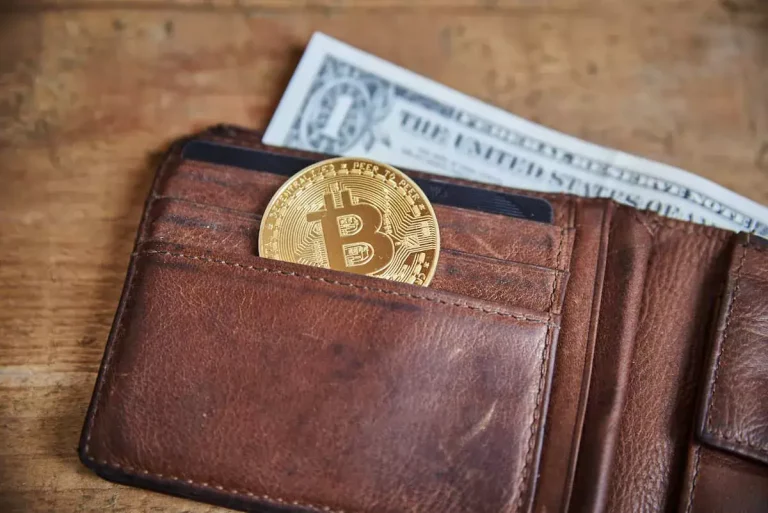Without AML, exchanges can be utilized to facilitate exercise with dangerous actors or repurposed to function on or off-ramps for placement or integration. Illicit funds can even unknowingly move via an harmless exchange, the place a person unwittingly receives cash linked to a nasty cash path. As part of an effective compliance program, companies are required to designate an individual to imagine responsibility for day-to-day compliance with AML regulations. Their function is to ensure that reports are accurately filed, workers are properly educated, and compliance insurance policies are updated.

Criminals see cryptocurrencies as a convenient device to obfuscate the origins and locations of illicit funds, making it difficult for regulation enforcement agencies to track and seize these property. With subtle tracing instruments available, financial watchdogs and regulation enforcement agencies have demonstrated their capability to determine and expose money laundering actions involving Bitcoin. Since every Bitcoin transaction is recorded on the blockchain, authorities can leverage this data to uncover illicit schemes. Notably, there have been instances the place attempts to execute a $5 billion cryptocurrency heist had been thwarted.
Chainalysis Know Your Transaction helps companies comply with these obligations by mechanically detecting patterns of suspicious exercise, sending real-time alerts, enabling in-depth investigations, and integrating into compliance staff workflows. As cash laundering and illicit financial conduct creep into crypto platforms, the need for properly designed AML and KYC policies grows. AML compliance practitioners attempt to grasp how criminals use crypto and make crypto exchanges safer, giving users peace of mind about who they’re transacting with.
The Inevitable Misuse Of Cryptocurrency
In adopting KYC checks, establishments can assign a risk worth to people or entities and flag probably dangerous accounts and transactions upfront. To meet AML compliance requirements, establishments should gather information about counterparties to discover out whether the movement of funds is suspicious. Even although crypto pockets addresses and the motion of funds are visible in virtual asset transactions on public blockchains, attribution of those addresses usually requires extra analytical instruments. For example, digital asset monitoring firms have attributed pockets addresses to felony and high-risk entities, including these that are topic to sanctions. Compliance teams ought to repeatedly analyse customers’ transactions involving such property in the context of cryptocurrency and different digital assets; for example, a customer might convert fiat forex into cryptocurrency and vice versa.
Trust Wallet is a crypto wallet software program that offers its users full possession of their crypto funds. This text is informative in nature and should not be considered an funding suggestion. The variety of cryptocurrencies which are actively exchanged is approximately 20,000 and it gets larger every day as new cryptocurrencies continue to pop up available in the market.

Compliance groups should wrestle with requirements referring to cryptocurrency itself, the Bank Secrecy Act (BSA), anti-money laundering and cybersecurity. It just isn’t attainable to track fiat forex in a centralised place to discover out whether or not or where it has been within the arms of criminals. Except when cryptocurrency enters centralised crypto exchanges, mixers or tumblers, indirect exposure in crypto can be measured to a level. Just as criminals using traditional financial establishments try and obfuscate and obscure the origin of their illicit funds by shifting them by way of a series of entities and different financial establishments, an identical technique exists in cryptocurrency. A cryptocurrency holder might possess multiple wallets to collect and switch funds to intermediary non-service addresses on their method to a service address, such as a crypto change, via what are generally recognized as ‘hops’.
Are Aml Rules Enforced In Crypto?
Cryptocurrency cash laundering is on the rise because it’s tough for companies to implement efficient AML processes. AML turns into more complicated when launderers can simply and rapidly carry out 1000’s of transactions across completely different platforms, accounts and cryptocurrency wallets. Financial establishments are required to provide ongoing coaching for anti-money laundering processes. Personnel must be trained on the AML elements that apply to their function and be made aware of the exchange’s policies and procedures for minimizing the danger of money laundering and monetary crime. Adding to the complexity is the truth that multiple regulatory authorities exercise jurisdiction over crypto and virtual property. Outside the United States, differing regulatory regimes make it troublesome for compliance teams to ascertain and keep a world strategy to AML on crypto and digital belongings.
KYC and AML compliance play a vital role in establishing a secure and dependable crypto market by verifying user identities and monitoring transactions. This adherence to stringent protocols not only builds trust throughout the market but also enhances its credibility globally. Crypto platforms that follow these measures show a commitment to integrity and transparency, aligning with worldwide financial standards. Both crypto companies and traditional monetary companies companies follow similar finest practices to ensure compliance.

It helps to forestall criminals from utilizing digital currencies to fund unlawful actions, similar to drug trafficking and terrorism. Establishing a set of compliance standards also helps to protect digital foreign money users and businesses from being exploited by criminals. Anti-money laundering (AML) refers to a set of laws and laws enacted to forestall the illegal movement of cash worldwide. Money laundering refers to the process of concealing the origins of (illegally obtained) money by passing it by way of a usually complicated sequence of transfers or transactions. These transactions are usually legitimate and, hence, wouldn’t be flagged, thus allowing the unique owner of the illegitimate funds to use them for lawful purposes. They’re there to guarantee that cryptocurrencies aren’t used for unlawful actions like money laundering or financing illicit operations.
Crypto Transaction Monitoring
Regular re-evaluations of threat are necessary, especially considering the rapid tempo of regulatory modifications. The crypto corporations need to include the technology-driven options that finest fit their wants. As it’s potential to do this by either building an in-house answer or outsourcing, the latter option makes more sense to nearly all of the companies as the automation is essential so as to maintain a compliance and growing business.
As a completely safe and compliant platform, Kriptomat not solely adheres to the very best standards of regulatory necessities but additionally supplies a user-friendly and secure buying and selling environment. Understanding these measures can alleviate considerations about privateness through the KYC and AML processes. Reputable crypto platforms like Kriptomat are dedicated to not solely complying with regulatory requirements but in addition guaranteeing the highest requirements of information security and privacy for his or her users.
That’s where AML practices are available, to offer a form of much-needed financial crime governance. It protects cryptocurrency environments and boosts the status and adoption of cryptocurrency as a whole. Its presence in financial onboarding and other key cryptocurrency processes is only set to develop as new transacting methods emerge and the number of people participating in cryptocurrency activity increases. Discover what eKYC is and the way it streamlines and reduces the cost of buyer identification verification while ensuring compliance with KYC regulations.
A set of international legal guidelines enacted to curtail legal organizations or individuals laundering cash via cryptocurrencies into real-world cash. The crypto sector is topic to frequent regulatory updates as governments and financial authorities adapt to the altering panorama. These adjustments may have an result on how you use crypto platforms, the data you have to provide, or the finest way your transactions are processed. Understanding AML laws in the context of crypto transactions is key to appreciating why sure checks and balances are in place. It’s all a part of making the crypto world a safer place for respectable traders and traders such as you.
- The results of transaction monitoring help create configurable wallet danger scoring so customers can better understand who they’re transacting with.
- The European Union (EU) and other jurisdictions had adopted similar anti-money laundering measures to the U.S.
- Anti-money laundering (AML) refers to legally recognized guidelines for preventing money laundering.
- Just as the web encompasses each public and private cloud servers, the crypto world also has public and private blockchains.
- Throughout the account’s lifetime, financial institutions should conduct buyer due diligence (CDD), or maintain correct and up-to-date information of transactions and buyer information for regulatory compliance and potential investigations.
In essence, KYC and AML compliance are more than just regulatory necessities; they are foundational elements that make positive the crypto market stays a secure and viable house for financial innovation and funding. As a consumer, understanding and appreciating the importance of these processes can result in a more secure and assured experience in the world of cryptocurrency. In this part, we’ll break down what KYC and AML actually mean within the context of buying and promoting cryptocurrencies. How do they affect your crypto transactions, and what does the worldwide regulatory panorama appear to be for these measures? Let’s dive into the world of crypto compliance and understand why it’s a big deal for everybody involved in this digital financial revolution.
Politically Uncovered Particular Person (pep): An Summary Of How To Outline, Determine And Display Screen For Peps
In cryptocurrency buying and selling online, there is not any condition to establish the customers face-to-face and it is potential to trade funds anonymously. Anti-money laundering (AML) on the earth of cryptocurrencies covers all of the rules, insurance policies and pointers that purpose to bring a halt to the criminals who search aml crypto software to change their illicitly gained cryptocurrency funds with cash. Governments have evolved their approach to cash laundering deterrence by establishing and revising regulatory controls that elicit proactive participation from financial institutions. Anti-money laundering is crucial for safeguarding consumers and companies from monetary crimes.

Additionally, cryptocurrencies facilitate cross-border transactions whereas bypassing the controls of traditional monetary establishments. It requires monetary establishments, together with crypto exchanges, to assist authorities businesses to determine and cease cash laundering. Finally, particular and regular training for compliance groups on cryptocurrency and other digital assets is recommended. Keeping updated with new asset varieties, market trends, typologies in the usage of cryptoassets for money laundering and corresponding regulations is vital for effective AML compliance. When performed throughout onboarding and for ongoing KYC, wallet screening and due diligence assist to establish bad actors by recognising threat exposure and, in some instances, associating wallets with a known entity or particular person. Transactions outdoors the monetary institution’s risk threshold could be blocked and fraud may be combated by pinpointing a wallet’s supply and destination of funds.
It might entail steadily modifying present laws and rules or establishing totally new packages in different jurisdictions. While some regulatory issues, including penalties, usually are not exclusive to the crypto industry, corporations must be well-versed within the specific nuances and issues that apply to their operations. By navigating these complexities, firms can show their commitment to compliance and build a powerful basis for sustainable growth in the https://www.xcritical.com/ evolving regulatory landscape. Only recently, underneath the Anti-Money Laundering Act of 2020, did U.S. corporations turn out to be legally required to comply with monetary screening regulations that apply to fiat currencies and tangible property. Businesses that trade or transmit virtual currencies qualify as regulated entities and should register with FinCEN, adhere to AML and CFT legal guidelines, and report suspicious customer info to financial regulators. Analysis of illicit flows increases our intelligence of cash laundering, even on this low-visibility surroundings.
